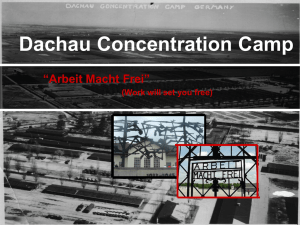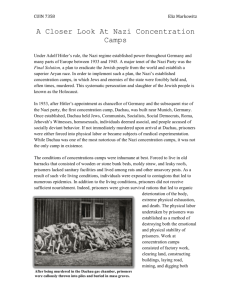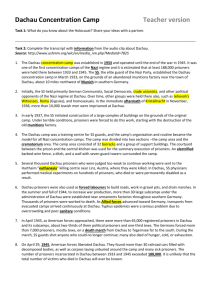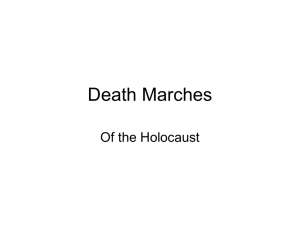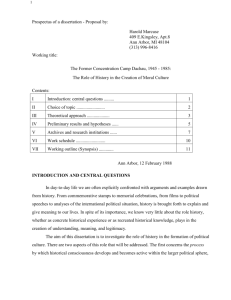press release - Verzetsmuseum
advertisement
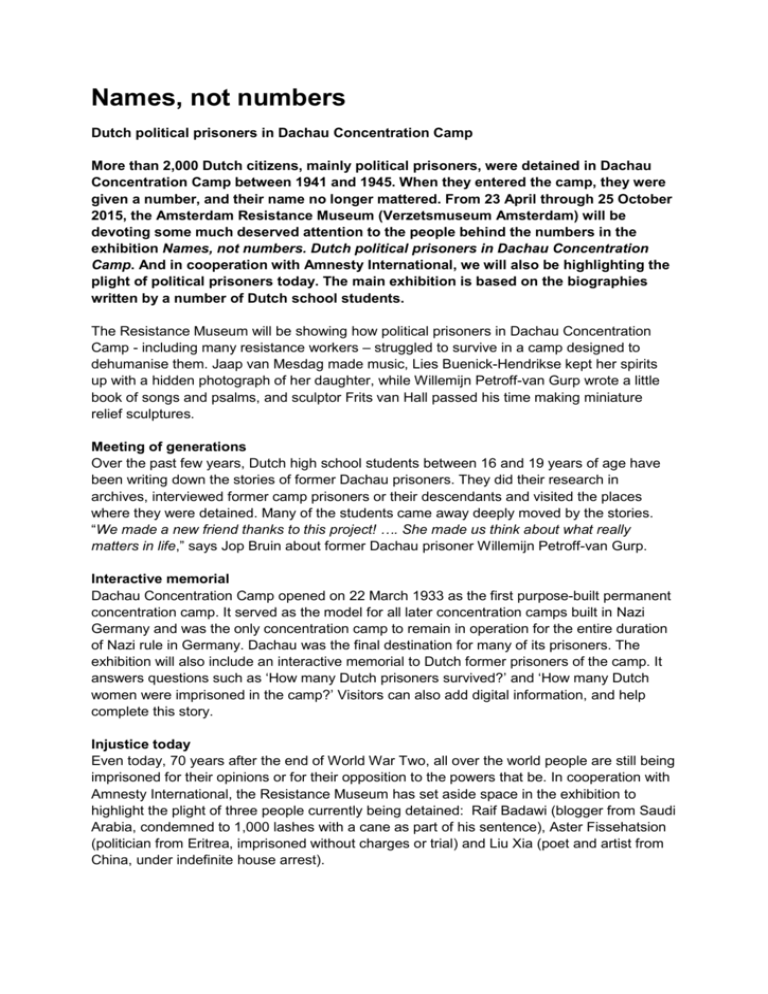
Names, not numbers Dutch political prisoners in Dachau Concentration Camp More than 2,000 Dutch citizens, mainly political prisoners, were detained in Dachau Concentration Camp between 1941 and 1945. When they entered the camp, they were given a number, and their name no longer mattered. From 23 April through 25 October 2015, the Amsterdam Resistance Museum (Verzetsmuseum Amsterdam) will be devoting some much deserved attention to the people behind the numbers in the exhibition Names, not numbers. Dutch political prisoners in Dachau Concentration Camp. And in cooperation with Amnesty International, we will also be highlighting the plight of political prisoners today. The main exhibition is based on the biographies written by a number of Dutch school students. The Resistance Museum will be showing how political prisoners in Dachau Concentration Camp - including many resistance workers – struggled to survive in a camp designed to dehumanise them. Jaap van Mesdag made music, Lies Buenick-Hendrikse kept her spirits up with a hidden photograph of her daughter, while Willemijn Petroff-van Gurp wrote a little book of songs and psalms, and sculptor Frits van Hall passed his time making miniature relief sculptures. Meeting of generations Over the past few years, Dutch high school students between 16 and 19 years of age have been writing down the stories of former Dachau prisoners. They did their research in archives, interviewed former camp prisoners or their descendants and visited the places where they were detained. Many of the students came away deeply moved by the stories. “We made a new friend thanks to this project! …. She made us think about what really matters in life,” says Jop Bruin about former Dachau prisoner Willemijn Petroff-van Gurp. Interactive memorial Dachau Concentration Camp opened on 22 March 1933 as the first purpose-built permanent concentration camp. It served as the model for all later concentration camps built in Nazi Germany and was the only concentration camp to remain in operation for the entire duration of Nazi rule in Germany. Dachau was the final destination for many of its prisoners. The exhibition will also include an interactive memorial to Dutch former prisoners of the camp. It answers questions such as ‘How many Dutch prisoners survived?’ and ‘How many Dutch women were imprisoned in the camp?’ Visitors can also add digital information, and help complete this story. Injustice today Even today, 70 years after the end of World War Two, all over the world people are still being imprisoned for their opinions or for their opposition to the powers that be. In cooperation with Amnesty International, the Resistance Museum has set aside space in the exhibition to highlight the plight of three people currently being detained: Raif Badawi (blogger from Saudi Arabia, condemned to 1,000 lashes with a cane as part of his sentence), Aster Fissehatsion (politician from Eritrea, imprisoned without charges or trial) and Liu Xia (poet and artist from China, under indefinite house arrest). Publication and other activities The exhibition Names, not Numbers is accompanied by a publication that includes all the biographies of former Dachau prisoners written by Dutch school students, together with an introduction by Jos Sinnema, the initiator of the project. Numerous other activities will also be organised in connection with the project, including a stage presentation in the Bellevue Theatre on 4 May, presentations by high school students people and small exhibitions in various locations across the Netherlands, including in the National Monument Camp Amersfoort. See www.verzetsmuseum.org for more information. Note to the editor: For interview requests, more information and images, please contact Marije Kool, interim marketing manager Verzetsmuseum Amsterdam, +31 (0)6 20309006 / kool@verzetsmuseum.org Some former Dachau prisoners, relatives of victims and the young biographers are available for interviews. Ibrahim Mahmoud Ahmed Sherifo, the son of Aster Fissehatsion is also available for media enquiries. Names, not Numbers is sponsored by: V fonds, Nationaal Comité 4 en 5 mei, Mondriaan Fonds, Stichting DOEN, VSB fonds, Fonds voor Cultuurparticipatie, Prins Bernhard Cultuurfonds, Gravin van Bylandt Stichting and the DELA fonds. Realisation in cooperation with: Amnesty International, Nationaal Monument Kamp Amersfoort, Nationaal Monument Kamp Vught, KZ Gedenkstätte Dachau, Comité International de Dachau Parijs, Trägerkreis Gedächtnisbuch Dachau (Project Namen statt Nummern), Stichting Vriendenkring van Oud-Dachauers, Nederlands Dachau Comité, Stichting Nationaal Dachau Monument, Centraal Orgaan Voormalig Verzet en Slachtoffers (COVVS), Comité Vrouwen van Ravensbrück, Vriendenkring Mauthausen, Vriendenkring Natzweiler, Stichting Musea en Herinneringscentra 40-45
